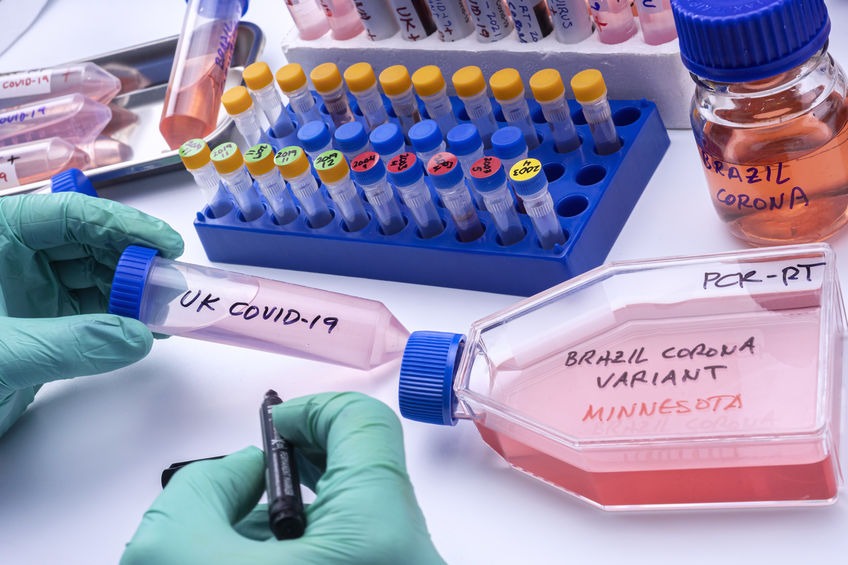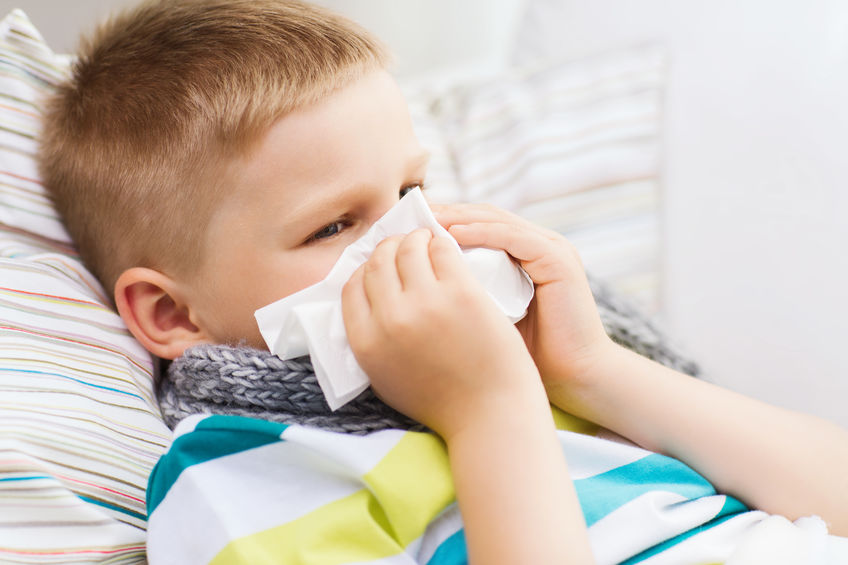
Viruses are smart. They find new ways to enter the body, adapt to different environments, and change their DNA — all in order to survive.
Unfortunately, the virus that causes COVID-19 is also working hard to stay alive, including by changing (mutating). When a virus undergoes a mutation, this is called a variant.
Variants in Nebraska
As of April 7, 2021, Nebraska has confirmed nearly 300 variant COVID-19 cases — up from just 100 at the beginning of the month.
All viruses change. But because COVID-19 is still so new — and not everyone has had their vaccine yet — health experts are a little more concerned. And as a parent, you might be, too.
While we’re still learning about COVID-19 and its variants, there’s a lot we know, including what steps you and your family should be taking to stay safe.
The Basics: How Does a Virus Mutate?
Imagine a copy machine, which is like the genome sequence (or DNA) of a virus. Each time a virus spreads, it copies the same document over and over.
But sometimes, the machine slips up, and it copies a tiny change in that document. This is called a mutation.
The more widely a virus is spreading in a population, the more chances it has to mutate.
Variants aren’t always successful, and they can actually make the virus die out. Other times, variants are slightly stronger, and they may be better at transmitting from person to person or more resistant to the human immune system.
Variants in the United States
There are currently 5 concerning variants of COVID-19 in the US:
1. B.1.1.7: Initially found in the UK and first detected in the US in December 2020
2. B.1.351: Initially found in South Africa and first detected in the US in January 2021
3. P.1: Initially found in Brazil and first detected in the US in January 2021
4. & 5. B.1.427 and B.1.429: Initially found in California in February 2021
Also read, “What’s A COVID-19 Variant?“
What We Know About COVID-19 Variants
Virus mutation is not new. Take the influenza (flu) virus, for instance. There are four types of flu viruses, subtypes of each of those, clades (or groups) of each of those, and so on.
So, it’s not surprising that the coronavirus that causes COVID-19 has mutated. It’s also not a new concept for scientists and health experts — and neither are coronaviruses.
To start, human coronaviruses have been on scientists’ radar since the mid-1960s. Scientists have been actively monitoring the changes in coronaviruses, including the changes to those spikes they get their name after.
We also know that multiple variants are circulating in the US and around the globe. These COVID-19 variants seem to spread more easily and quickly than other variants.
Possibly one of the most promising factors is regarding the COVID-19 vaccines. So far, studies show that the antibodies (proteins made by your immune system to fight infections like COVID-19) your body makes after getting any of the currently authorized vaccines (Moderna, Pfizer, and Johnson & Johnson) do recognize these variants.
This means that approved vaccines are expected to provide at least some protection against these new COVID-19 variants.
Finally, the most effective way to fight these variants is to stop the spread of COVID-19 at the source. This means protection measures like handwashing, wearing a mask, and avoiding crowded places (physical distancing) are still critical.
It also means that, when it’s your turn (or your child who is above 16 and can get the Pfizer vaccine), get your COVID-19 vaccine.
What We Don’t Know About COVID-19 Variants
While coronaviruses may be somewhat old news, the virus that causes COVID-19 was first detected in 2019 (hence its name).
This means that there are still some things scientists and health experts don’t know about COVID-19 variants, including:
- How widely the variants have spread around the world
- How the illness caused by these variants is different than the ones caused by the original virus
- How the variants will impact existing treatment, testing, and vaccines moving forward
For instance, one major consideration is vaccines. They might need more than one strain in future development or people might require booster shots down the road.
What Does This All Mean For My Family and Me?
If the past year has taught us anything, it’s that working together, listening to science, and being patient are key.
As those who are eligible to get vaccinated do so, it’s easy to see the light at the end of this long and trying tunnel. However, now is not the time to give up.
Instead, now is the time for you and your family to continue to adhere to preventative measures like handwashing, mask-wearing, and avoiding public gatherings. Also, be sure to stay up-to-date on the latest information, such as through our Children’s COVID-19 Resource Center.
Finally, remember to take it day by day. By now, you know how hard scientists and health experts are working to keep everyone safe — and we need to let them do just that.
Do you have questions about COVID-19, including about variants? Your child’s primary care provider is a great place to start.



